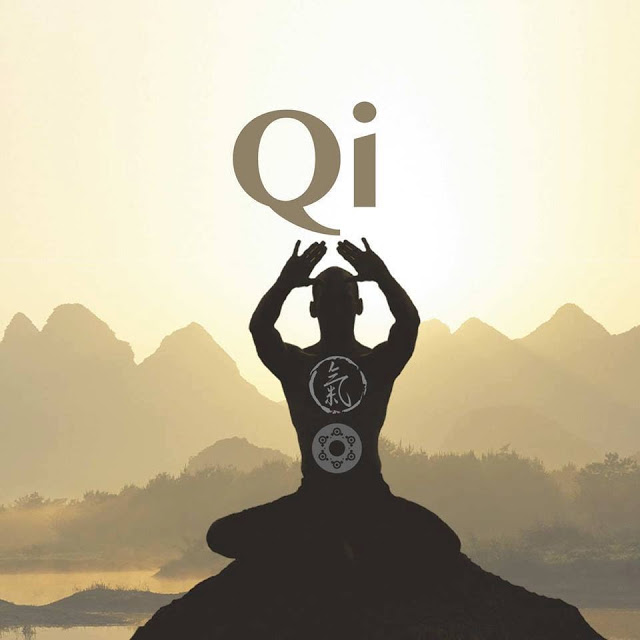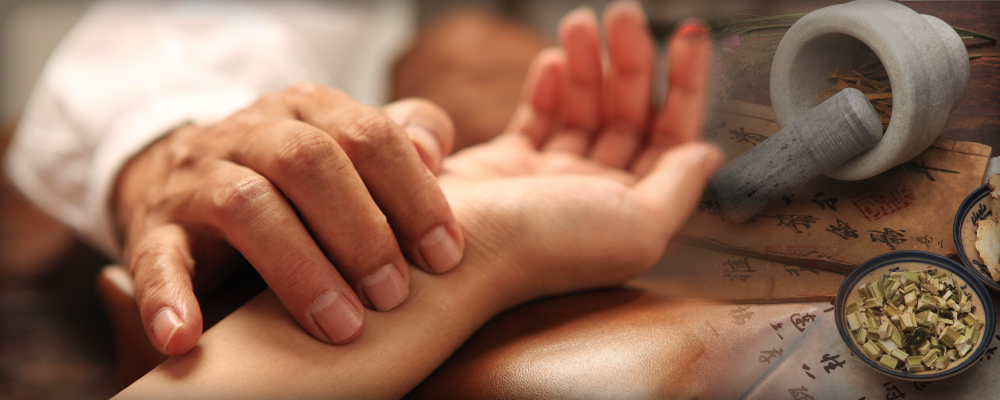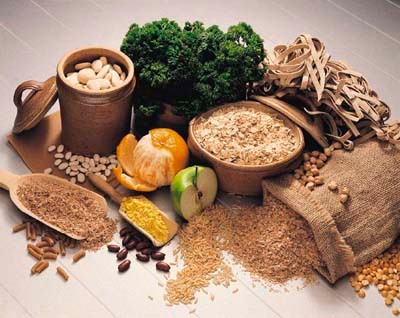Shop News
-
25/11/2025Ganoderma Benefits
-
07/02/2025Colds & Flu - treatment and prevention
-
24/01/2025Ginseng - Nature's anti-inflammatory
-
23/01/2025Curcumin Benefits
-
02/05/2024Allergies Tradicional Chinese Medicine
-
12/03/2024Food Combining and Chinese Medicine
-
23/08/2023Phytoestrogens
-
05/06/2023Ginseng Benefits
-
02/06/2023Aumento de precios de la marca Blue Poppy
-
20/07/2022Infertility and Chinese Medicine
-
10/05/2022Allergic Rhinitis
-
24/03/2022TCM Obesity and Its Causes
-
23/03/2022Cancer Prevention and Diet
-
26/01/2022Medicinal Mushrooms
-
18/12/2021Christmas Remedies
-
09/07/2021CANDIDIASIS
-
03/03/2021Chinese Herbal Medicine formula studied to improve cancer therapy
-
12/01/2021The benefits of Xiao Yao San
-
15/09/2020Coronavirus Protocol (summary)
-
01/06/2020TCM Principles for Weight Loss
-
12/02/2020Take Good Care of Your Qi
-
01/01/2020Cordyceps Sinensis Benefits
-
01/12/2019Prevention & Treatment of Colds & Flu
-
27/04/2019ANXIETY - causes and treatments
-
26/03/2019Prostatitis and Chinese Herbs
-
01/03/2019What is an Adaptogenic Herb?
-
05/02/2019New Jade Herbal Formulas
-
09/12/2018The Shen of the Heart
-
23/08/2018Hyperthyroidism and Hypothyroidism
-
05/07/2018FOCUS ON A REMEDY: WARM THE MENSES
-
04/04/2018Treating Insomnia With Chinese Herbal Medicine
-
25/03/2018Cordyceps Sinensis research
-
01/03/2018Chinese Herbal Medicine for Panic Attacks
-
07/11/2017BI SYNDROME
-
01/09/2017Chemotherapy and Anti-Oxidants
-
05/03/2017Lumbar Disc Herniation
-
31/01/2017Treatment Principles in Exterior Invasions
-
21/10/2016Healthy Aging and Oriental Medicine: Qi is the secret
-
23/09/2016Horny Goat's Weed Benefits
-
25/06/2016Ginkgo Biloba Benefits
-
23/03/2016Blood Stasis
-
23/01/2016CHRONIC FATIGUE SYNDROME
-
28/12/2015TONICS
-
24/10/2015A CASE HISTORY OF CHRONIC BRONCHITIS
-
23/09/2015Ganoderma Lucidum reduces obesity in mice
-
01/07/2015The Five Elements and Diet in Chinese Medicine
-
23/05/2015Daoist Sexual Practices
-
21/02/2015DEPRESSION
-
22/01/2015GLAUCOMA
-
20/12/2014ENDOMETRIOSIS
-
28/11/2014POLYCYSTIC OVARY SYNDROME
-
21/08/2014Ear infections and antibiotics
-
24/06/2014FOCUS ON A REMEDY: CHEMO-SUPPORT
-
21/03/2014Stomach-Yin Deficiency and Jade Spring
-
21/02/2014JOY, AN EMOTIONAL CAUSE OF DISEASE?
-
17/01/2014SEXUAL LIFE IN CHINESE MEDICINE
-
19/12/2013ON STAGNATION OF LUNG- AND HEART-QI
-
14/11/2013THREE TREASURES REMEDIES FOR PAIN
-
23/10/2013HEADACHE CASE HISTORY
-
12/07/2013Giovanni Maciocia Clinical Tip: Arouse Power
-
19/04/2013Case history - Chronic constipation
-
18/06/2012Herbs for the treatment of Anorexia
-
09/04/2012REMEDY OF THE MONTH: CLEAR YANG
-
28/04/2011Lingzhi slows progress of Alzheimer’s
-
18/10/2010European Legislation for natural products
-
19/09/2010700-year-old Chinese medicine can treat depression...
-
01/09/2009Swine Flue
Healthy Aging and Oriental Medicine
Is there a limit to Qi energy reserves?

It is known in fundamental science, that the human form has a limited life span. This is true for most living species. What influences healthy aging of each living organism and especially the human form is unique to each individual based on common factors.
In Oriental Medicine, aging is viewed not by age but by the amount of Qi reserve within the complex of all body systems influenced by its environment.
In ancient times without the knowledge known now as the human genome, Eastern Medicine scholars viewed longevity by a relative quantity or manifestation of the amount of Vital Qi. Qi, known as an essential life giving force that permeates every cell, tissue, and organ, also is the trigger to signal a cell to thrive or die.
Inherited qi, also called Prenatal Qi, influences how much Qi a person is born with. Prenatal Qi is set by family genetic patterns and fetal health during prenatal life. These conditions vary from person to person and sets the stage for the quality and quantity of the Vital Qi someone is born with. It also influences the potential for good health throughout the course of one’s life.
If the Vital Qi could be measured, some would appear to be born with a full vessel filled with Qi while others may have only one half or two thirds full. If the amount of Qi in early life starts out less than full, it is more challenging to attain robust health and longevity. Although there are recommended suggestions to accelerate or try to catch up on Qi reserve, it is unlikely to reach the same full amount of vitality that some are naturally born with. In a more modern view, few inherent genetic markers can be self-corrected and therefore often impact the quality of long term health. Also known in modern medicine, is that by applying targeted nutritional intervention genetic errors can be redirected and improve outcomes and quality of health.
Preservation of Vital Qi
Factors that impact Vital Qi after childbirth initially have to do with neonatal and early childhood care and nutrition. As a child, Qi is more fragile and needs to be protected. Having a healthy environment emotionally, socially, and as well as nutritionally makes a difference. Exposure to medical interventions, drugs and toxins are best kept to a minimum since these impact the resilience of Qi. Early childhood nutrition builds the groundwork and sustains it in adult life for abundant Qi and blood to thrive.
Everyone is not the Same Constitution
In Eastern Medicine not everyone is expected to age the same way, not only because of the differences in Vital Qi levels or secondary to different genetics within an ethnicity, but because the body is viewed as different constitutional types. These different types pertain more to the laws of nature according to the elements. The five elemental constitutional types are water, wood, fire, earth and metal. Therefore health recommendations are individualized. Suggestions for someone who reflects a constitutional type pertaining more to the element of fire may not receive the same recommendations as one would if they reflected more qualities like the element of earth.
These element specific recommendations support nutrition and diet, exercise, sleep plus herbal formulas and acupuncture points. Those who reflect more of the element of fire would not benefit from spicy foods or a predominantly cooked food diet. Whereas those who reflect more of the earth element may benefit more from cooked pungent foods rather than cold and raw foods. Without personalized dietary choices, even a healthy diet may not build maximum Qi reserve.
Avoiding Excesses and Deficiencies
In order to avoid accelerating aging or damage to Vital Qi certain excesses and deficiencies are to be avoided. Excesses include too much exercise, sexual activity, medications and drugs, alcohol, extreme weather, internal and external toxins and excess emotions and stress. All of these in excess can cause damage to Vital Qi and prevent its consolidation.
Excess exposure to extreme climates can also be detrimental and cause imbalance even if it’s intended for sports and enjoyment. Some are more vulnerable to the outdoor elements and need more protection against overexposure. Wind is an element not well tolerated for those with a weak immune system. Any exercise in the wind is especially depleting.
Lifestyle can support the consolidation of Qi or it can accelerate its decline
Deficiencies that prevent the growth of Qi, include a lack of essential nutrients and food or not enough exercise, or adequate rest, relaxation, and a lack of human connection and affection. Without these vital life supportive qualities, Vital Qi is not nourished and can become depleted more easily.
Eastern medicine’s ancient knowledge shares secrets of increasing
Vital Qi
There are few super foods or vitamins that can increase Vital Qi. But with practice, vitality enhancing exercises like Qi gong, Tai chi, and yoga contribute to preserving and increasing Vital Qi. Ancient yogic breathing combined with movement helps to sustain vital functions and increase the abundance of Qi.
Herbs and Acupuncture
Adaptogenic Chinese herbal formulas are known to enhance Vital Qi and energy. Each formula is designed to adapt to the changes in Vital Qi as the body needs them. Many of these herbs contain active food constituents like bioflavonoids, and vitamins that improve immune function and support hormone activity. Examples of some of the common herbs recommended include shan yao (dioscorea), gou ji berries (lychi), rou cong rong (cistanches), various forms of ginseng, jiao gu lan (gynostemma), plus blood nurturing herbs like he shou wu (polygonum), dan shen (salvaiae), and dang gui (angelicae). (The herbs listed do not include a specific species)
Treatments with Acupuncture are selected based on individual constitutional type. Each point chosen taps into a network of circulating pathways that activate and recharge cellular activity. The beneficial effects serve as a way to consolidate reservoirs of energy stores and remove blockages of Qi that can slow down smooth active organ function. Receiving acupuncture on a routine basis is similar to getting an engine tune up at prescribed intervals to adjust and lubricate all its parts to keep all of its systems running smoothly.
Diet
Diet is known for its direct influence on health, and in Oriental medicine, food selection is also based on elemental constitutional type. There are five flavors that correspond with the five elements which include salty, sour, bitter, sweet, and pungent. Diets that are more individualized are more regenerative for each constitution and promote longevity as well as good digestive health.
Emotions
Balanced emotions can tip the scale between sustained health and depletion. Staying in harmony with one’s elemental constitution and life path helps keep emotions balanced and promotes sustained long-term health.

Optimal Health using Eastern Medicine
5 Vital Steps to Preserve Vital Qi and Longevity
1. Keep a diet diary and review the foods you crave the most.
Look at your diet and see which flavors you eat most often. The flavors you crave may indicate you need more of it in your diet to balance the five elements. It could also mean you are out of balance and what you crave is not beneficial for you. A good example is if you crave sweets. It doesn’t mean you are deficient in the flavor of sweet but may indicate a weak condition in the earth element or digestive system.
If you crave salt it could mean your water element, the kidney, is not concentrating your minerals well enough and you need the extra electrolytes derived from salt.
Himalayan salt from the east is known to be a powerful regulator of the body’s acid alkaline balance. It contains more than 80 minerals naturally without processing. It helps to regulate the brain’s neurotransmitter exchange, stabilizes bone growth and enhances the kidneys functions.
2. Eat according to your elemental constitution but include a balance of all 5 flavors in your diet.
Regardless of your elemental constitution, the digestive tract needs constant warmth to maintain the digestive fire. Digestion involves manufacturing enzymes and maintains a balance between good and bad bacteria. Include a balance between warm and cold foods to help regulate the digestive fire. An excess of either temperature will affect digestion and long term health.
Salty, sweet, sour, bitter, and pungent are common flavors to include in the diet. Bitter flavor is the least often included in the diet but is just as significant as the others. Foods like greens including kale, chard, arugula, broccoli, and green onions are bitter plus coffee, tea, and dark chocolate also have a bitter flavor. Eat these vegetables cooked and raw according to your constitution’s needs. Many herbal formulas use bitter herbs to balance the heart, digestion, and chronic infection conditions.
3. Exercise daily but gently. Begin the day with breathing exercises and add standing exercises like Qi Gong or Tai Chi plus moderate aerobic activity.
Standing Qi Gong strengthens the tendons, ligaments, and joints. It strengthens the Vital Qi to connect the mind and body. It opens up the acupuncture channels and cultivates yang qi to reinforce natural body detoxification and consolidates yin qi to nourish blood and beneficial fluids. It harmonizes internal organs to support the transformation of physical energy into vital sustainable energy.
One common Qi Gong exercise is standing with the feet shoulder distance apart knees slightly bent with the elbows bent and hands positioned as if holding a large imaginary ball. Take steady deep breaths while lightly applying pulsed pressure on the imaginary ball and releasing with each exhale. Practice for 5 -10 minutes daily which will gradually strengthen and enhance continuous sustainable energy.
4. Balanced emotions Self-reflection
Keeping balanced emotions requires time for contemplation and self-reflection. Allow enough quiet time to listen to your internal voice. Stay in touch with what your body may tell you it needs. A time for meditation is best in between meals. Flavors you crave may become more obvious at this time. Thoughts and good ideas may become clearer by allowing this time for them to come quietly into your inner sanctum. After 20 minutes of contemplation without distractions, feelings may surface and can be processed while with a restful mind. Without including this part of health maintenance, imbalanced emotions often lead to stress and excess strain on the body’s balancing systems.
5. Sleep and Self Massage
Sleep is essential to keep the “Shen” or spirit balanced. Without enough sleep Vital Qi cannot regenerate. Over time lack of sleep can create an excess of stress and demand on the body, mind, and spirit.
Create restful rituals before bedtime. Allow 30 minutes before bed to create a quiet and restful environment. Self-massage helps to relieve tension and relax muscles and nerves. Use a long handled massage tool to stroke across the upper back and shoulders. Using mild pressure press along the acupressure channels on both sides of the forearm. Using the fingertips press acupuncture points surrounding the ears and across the forehead. Finally, stroke downward from the scalp to the face several times closing the eyes just before the final moments before sleep.
Take long deep breaths as a way to invite the body to drift into a peaceful sleep.
